Affiliate Disclaimer
Some links in this article are affiliate links. We may earn a small commission if you make a purchase through these links, at no extra cost to you. We only recommend products we find useful to our readersNightshade vegetables. Just the name itself sounds a lot shady, doesn’t it? While there are several controversies and misunderstandings with the same, these vegetables are often a staple in our diet. There are many tales about these vegetables and its implications on our health but there impacts still need further studies.
When we say that the majority of our diet is filled with these vegetables, we aren’t kidding. This is the reason why it is important to ensure that you take in the importance of these vegetables to be able to get better clarification of the myths and facts.

By the end of this article, you will have a better idea about the nightshade vegetable list and everything there is to know about the same.
What are Nightshade Vegetables?
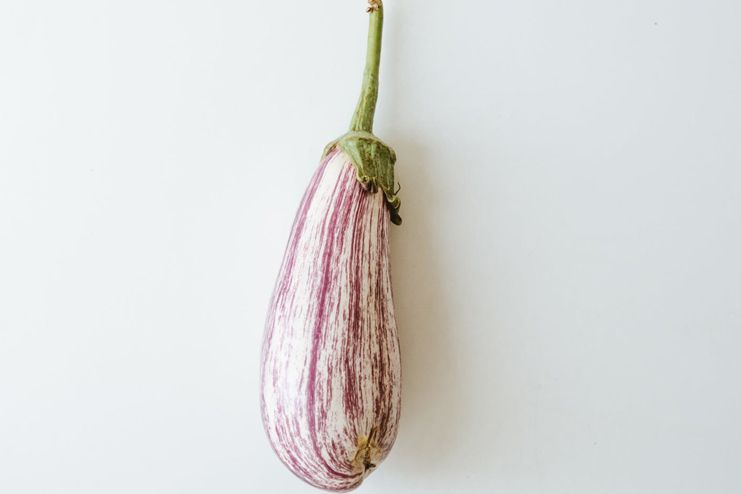 Nightshade vegetables are the group of vegetables mainly associated with the family Solanaceae. While the majority of the vegetables under this category are safe for consumption, there are some of them in the group which can end up proving fatal for some.
Nightshade vegetables are the group of vegetables mainly associated with the family Solanaceae. While the majority of the vegetables under this category are safe for consumption, there are some of them in the group which can end up proving fatal for some.
The main reason why people have this notion that the nightshade vegetables can be bad for you is because of the fact that they contain the compound Solanin, whose high concentration has the capability to end up causing issues for the body.
Are Nightshade Vegetables Bad For You?
 Yet another one of the factors about the nightshade foods list is to know whether or not they are bad for your health. Knowing this itself helps in wiping out the majority of the issues and the assumptions surrounding the same.
Yet another one of the factors about the nightshade foods list is to know whether or not they are bad for your health. Knowing this itself helps in wiping out the majority of the issues and the assumptions surrounding the same.
It is quite important to assess why it is that people think that nightshade vegetables are bad.

People who are on an elimination diet think that it is better to scratch off the nightshade vegetables, or at least the majority of it. To be honest, there is not much that goes into the same, so, if you have been struggling along with the same, it is best suggested to ensure that you do take in the time to first assess whether or not it is actually harmful and then proceed with the assumptions.
When it comes to thinking whether or not the nightshade vegetables are bad for you, the same is because of the fact that it contains Solanin (R) which, in high concentration, can end up being a problem for one’s health.
Why Are Nightshade Vegetables Bad For You?
 Now that we have the basics covered, it is important to understand that the prospects of the nightshade vegetables being bad for you does stem from several different factors.
Now that we have the basics covered, it is important to understand that the prospects of the nightshade vegetables being bad for you does stem from several different factors.
There is not just one factor that drives people to think that nightshade vegetables are bad for one’s health.
For the most part, the consumption of the nightshade vegetables are often considered bad for a certain amount of people and not specifically for everyone and that too for a number of health conditions.
If you are wondering what kind of negative impacts the nightshade vegetables can bring in, we have listed out some of the important ones.
1. They can worsen the condition associated with the Autoimmune diseases

Autoimmune disorders can heavily affect one’s overall health. Even though the majority of the nightshade vegetable list are loaded with the necessary nutrients that the body needs for better development, there are people who tend to have the notion that it is best to eliminate from the diet.
People suffering from autoimmune issues have time and time claimed that the consumption of the nightshade veggies does end up making their condition worse. Even though there is not much evidence to support these claims, they have said that eliminating these vegetables from the diet has actually impacted a difference on their health.
The main reason why the same is believed is because of the fact that the leaves and the roots of the majority of these nightshade vegetables contain alkaloids in them. The alkaloids do have negative impacts on the body, and is also often responsible for the bitter taste that many often tend to experience while eating the edible part.
2. Worsens the Condition of Inflammatory Bowel Disease
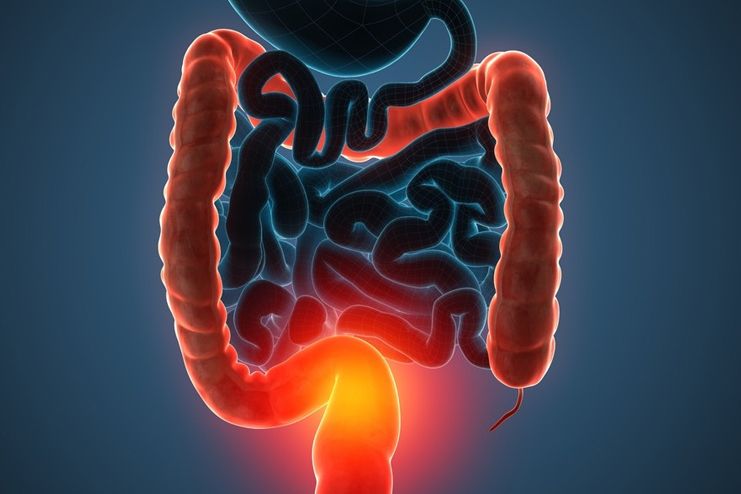
If you have been consistently experiencing pain and discomfort while consuming food and the digestion process, it is possible that you have been suffering from inflammatory bowel disease, thus making the condition worse.
That being said, it goes without saying the studies have found that the consumption of the nightshade vegetables have the capability of making the condition worse.
Given that the patients suffering from this condition tend to have their inner lining of the intestine disrupted, chances are that the same can end up causing issues with an infestation of the bacteria and such altogether.
There have been conducted studies (R) with some nightshade vegetables which have found that the presence of alkaloids in them can end up worsening the condition associated with the discomfort and inflammation.
Additional few studies (R) conducted on the tomato and peppers have found that the active compound in the, the pectin and capsaicin can end up increasing the intestinal permeability, thus making the condition worse.
3. Can Impact the Sensitivity and Allergies
 Yet another one of the bad impacts is the nightshade vegetable allergy or in other words, it has been found to make the condition of the sensitivity associated with the allergies and sensitivity worse.
Yet another one of the bad impacts is the nightshade vegetable allergy or in other words, it has been found to make the condition of the sensitivity associated with the allergies and sensitivity worse.
There are few people suffering who tend to be sensitive to nightshade vegetables. If that is the case with you, it is important that you talk to your doctor about the same to get better clarity on the same.
While there is no specific scientific evidence behind the same, there is a popular assertion which does suggest that the presence of Vitamin D in the nightshade vegetables can enhance the calcium deposits in the joints that can make the condition of arthritis and joint pain worse.
Many researchers have actually found traces of the presence of Vitamin D in the nightshade vegetables, thus further solidifying the claims that the same can end up causing excess calcium deposition in the soft tissues in the body, as shown in a few studies (R) as well.
Additionally, there are some nightshade vegetables which does have the capability of ending up flaring someone allergies that they struggle with.
Vegetables like that of eggplants have been found to be the most common one in the lot that people are allergic to. If the same is the case with you, it is always best suggested to ensure that you eliminate the same from the diet for good.
List of Nightshade Vegetables
 When it comes to suggesting the most common nightshade vegetables, we are going to help you have a clear idea about them and know of the prospects associated with the same. It is important that you pick and choose the ones that suit your health and the ones that don’t.
When it comes to suggesting the most common nightshade vegetables, we are going to help you have a clear idea about them and know of the prospects associated with the same. It is important that you pick and choose the ones that suit your health and the ones that don’t.
There are predominantly the following in the nightshade vegetable list.
1. Tomato
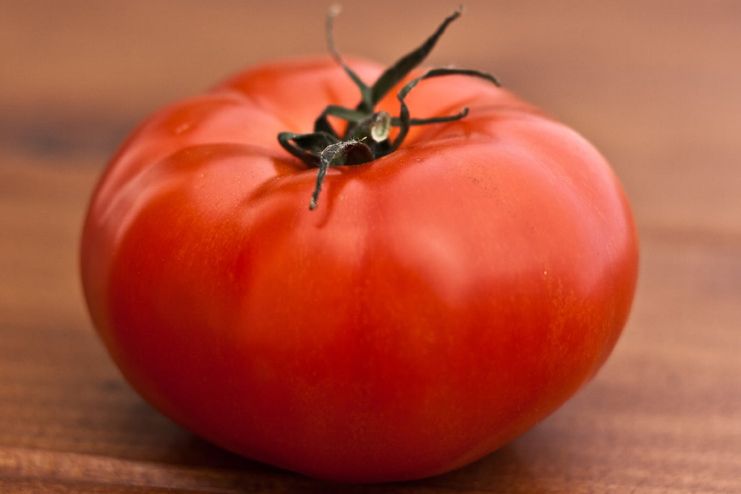 Tomato is loaded with essential vitamins and minerals, especially loaded with Vitamin A and C and pectin. Not just that, they are also loaded with beneficial antioxidant properties with the help of lycopene which has further been found beneficial in helping prevent the free radical damage in the body.
Tomato is loaded with essential vitamins and minerals, especially loaded with Vitamin A and C and pectin. Not just that, they are also loaded with beneficial antioxidant properties with the help of lycopene which has further been found beneficial in helping prevent the free radical damage in the body.
This is thus helpful in preventing unnecessary inflammation (R) and the factors that contribute to the condition of chronic diseases.
Chilli peppers
 Yet another one on the nightshade foods list has to be the chilli peppers. The presence of capsaicin in them is what marks them as one of the best vegetables because not only does it have beneficial analgesic properties, it has been found to help with better metabolism of the body too.
Yet another one on the nightshade foods list has to be the chilli peppers. The presence of capsaicin in them is what marks them as one of the best vegetables because not only does it have beneficial analgesic properties, it has been found to help with better metabolism of the body too.
Not just that, capsaicin also help in fighting off the problems associated with heartburn and such and even promotes faster weight loss by regulating your calorie intake in the body.
Eggplants
 Eggplants are often the one in the nightshade vegetable list which is considered to be the main contributor to the allergic reactions because of the seeds present in them.
Eggplants are often the one in the nightshade vegetable list which is considered to be the main contributor to the allergic reactions because of the seeds present in them.
But, keeping that aside, eggplants have been found to be loaded with a good amount of fibers in them which further helps in overall better digestion and such which is an added bonus. They also help in regulating the bowel movements, thus keeping the metabolism in the body in check.
Potatoes
 While the consumption of potatoes by itself isn’t often the best option altogether, they are considered as one of the best options when you are trying to lose weight or such. It is best suggested to ensure that you keep a check on its consumption.
While the consumption of potatoes by itself isn’t often the best option altogether, they are considered as one of the best options when you are trying to lose weight or such. It is best suggested to ensure that you keep a check on its consumption.
It has also been found that the potato skin is enriched with Vitamin B6, manganese and even potassium which is an added bonus.
Peppers
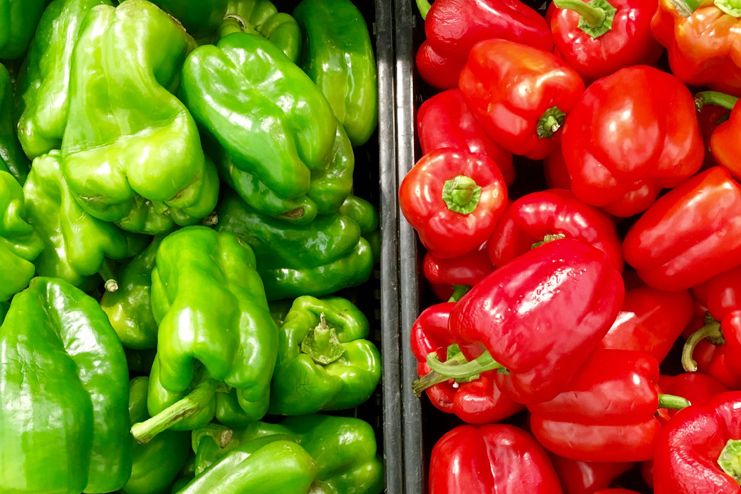 Last but not the least on the list of the nightshade vegetables are the peppers. These are not everyone’s favourite vegetable but they have been found to have amazing impacts on the body. It is loaded with Vitamin C which is quite quintessential for the overall functioning of the body. The vitamin C in the peppers have also been found to have beneficial impacts in helping enhance the overall iron absorption in the body.
Last but not the least on the list of the nightshade vegetables are the peppers. These are not everyone’s favourite vegetable but they have been found to have amazing impacts on the body. It is loaded with Vitamin C which is quite quintessential for the overall functioning of the body. The vitamin C in the peppers have also been found to have beneficial impacts in helping enhance the overall iron absorption in the body.
Myths And Facts About Nightshade Vegetables
 With the common prospects of discussion out of the way, it is important that we next divert our focus on the several myths and facts that are witnessed around for the nightshade vegetables.
With the common prospects of discussion out of the way, it is important that we next divert our focus on the several myths and facts that are witnessed around for the nightshade vegetables.
It is important one has a complete idea about the myths because that is what ends up causing the confusion in the first place.
1. Nightshade Vegetables Trigger Inflammation

One of the most common reasons why nightshade vegetables bad is because of the fact that people believe that they promote inflammation in the body. This is exactly where the problem arises.
There are no such scientific evidence that proves that these vegetables have any kind of impact on the overall inflammation in the body as such. It is the presence of solanine which is believed to be the trigger behind the condition altogether.
But, there is no possible explanation as to what and why the same does happen.
While there are no evidence behind it, people who have eliminated nightshade vegetables from their diet have suggested saying that the same did help in relieving the constant pain and such that they have been feeling.
2. Nightshade Vegetables Contribute to Osteoporosis

Yet another one of the common reasons as to why the nightshade vegetables are considered bad for you is because of the myth that it contributes to osteoporosis.
It is not necessarily true that the prospect of nightshade vegetables typically contribute to the condition of osteoporosis because for the most part, the presence of the oxalic acid in them has been found to not have many impacts on the body. If consumed in high quantities, there are chances that the same can end up contributing to the unprecedented levels of calcium loss that can lead to the condition.
Some experts have clarified this stance stating that the amount of oxalic acid that the nightshade vegetables have is not high enough and is actually essential for the body, on the contrary. It has been found to have better impacts in neutralizing the blood acid which is an added bonus altogether.
3. It Affects rheumatoid Arthritis

Yet another one of the myths that need to be debunked is the fact that people believe that the consumption of the nightshade vegetables have the capability of making the condition of rheumatoid arthritis worse. That is most definitely not the case at all.
There is no conceptualized study that has scientifically proven it as a fact, thus asserting the fact that the statement might not be completely true for that matter of fact. It is believed that some people suffering from arthritis tend to have issues suffering from the food allergies which could then end up contributing to the pain and the stiffness that you are mistaking for the worsening condition of arthritis.
4. All Nightshade Vegetables Contain a Toxic Alkaloid
 Believing that each and every one of the nightshade vegetables contains the toxic alkaloids in them is completely untrue and doesn’t hold any kind of scientific basis to the findings.
Believing that each and every one of the nightshade vegetables contains the toxic alkaloids in them is completely untrue and doesn’t hold any kind of scientific basis to the findings.
The only fact that holds true in this is the fact that the presence of solanin which is witnessed in the potatoes end up being the problem in the first place. If you find any kind of green colouration present on the potatoes, it is best suggested to ensure that you avoid eating that part.
Other than that, the other nightshade vegetables don’t necessarily contain any form of toxic alkaloids in high concentration that can end up making things worse in the long run.
5. Nightshade Vegetables are loaded with nutrients
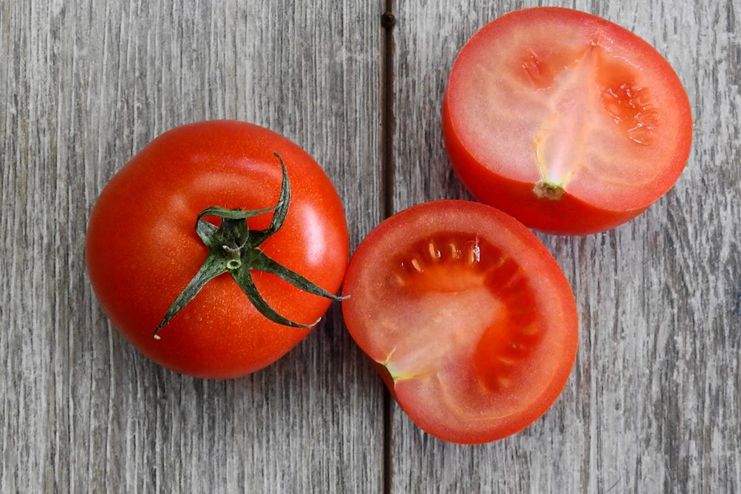 It is completely true that the nightshade vegetables are loaded with some of the best kind of nutrients in them which make them such favourable options for consumption, if that is something that you are aiming for.
It is completely true that the nightshade vegetables are loaded with some of the best kind of nutrients in them which make them such favourable options for consumption, if that is something that you are aiming for.
Amidst all the myths, this is an actual fact and does hold true because each and every single one of the nightshade vegetable has been found to have some form or the other of the necessary nutrients that you just can’t brush aside altogether.
We have mentioned all the nutrients in the preceding part of the article and hope it helps provide with a better perception on the same.
6. Nightshade Vegetables Cause Migraine
 One of the most common myths around the nightshade vegetables is the fact that it is believed to cause migraine in some individuals. There is no evidence at all when it comes down to these vegetables playing a role in the induction of pain and discomfort that comes along with migraine.
One of the most common myths around the nightshade vegetables is the fact that it is believed to cause migraine in some individuals. There is no evidence at all when it comes down to these vegetables playing a role in the induction of pain and discomfort that comes along with migraine.
According to some experts, it is believed that some of the benefits of these vegetables do outweigh the cons which are most definitely one of the reasons why it is a complete myth when it comes to the association of the nightshade vegetable list with migraine.
When it comes to discussion about the nightshade vegetables, there are a number of assumptions and talks that have no basis to them. If you have been planning on eliminating them, make sure that you know the full story behind and check your facts before dropping them from the diet. It is important to ensure that you do take into account all the factors and then check whether or not the cons associated with these vegetables are worse than that of the pros and then proceed accordingly.
In this Article

















